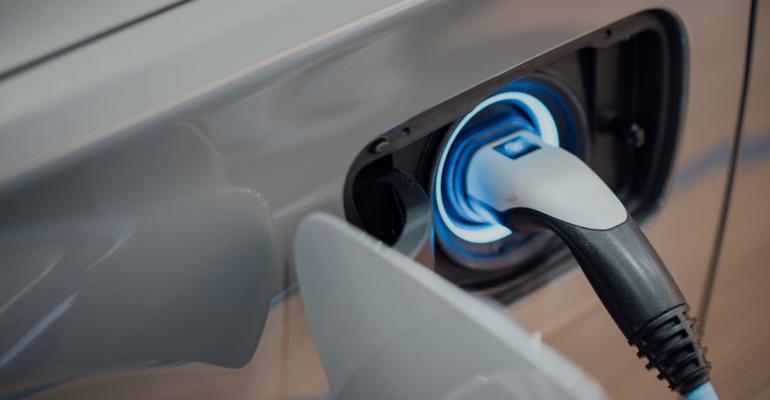Chemical specialist DuPont claims a breakthrough in battery thermal management with its new resin to aid cooling in battery-electric vehicles.
As BEVs boast bigger battery packs claiming longer ranges and higher performance, the heat build-up in lithium-ion batteries rises dramatically, increasing the risk of dangerously intense vehicle fires.
Now, DuPont’s AmberLite EV2X resin is launched as a high-performing glycol-purification solution for e-mobility. The company claims the resin helps extend the lifetime of battery-pack coolant while reducing glycol maintenance requirements, offering enhanced thermal stability and operating characteristics compared to standard ion-exchange resins currently on the market.
DuPont explains that the degradation of the glycol coolant and other components housed within the thermal management system releases impurities into the cooling loop, increasing the levels of conductivity. To prevent this, hydrogen fuel-cell and BEV manufacturers can install an ion-exchange filter comprising ion-exchange resins that can withstand the extreme temperatures and operating conditions of the system.
AmberLite EV2X has been tested and validated under extreme conditions, up to 221° F (105° C) for more than 1,000 hours. Noel Carr, DuPont marketing manager in support of e-mobility solutions, says: “Consumer demand for increased range, faster charging, larger vehicles and more energy-dense batteries is increasing temperatures within EVs, creating new challenges for vehicle manufacturers. Many manufacturers are turning from air cooling to liquid cooling systems that use glycol coolant to manage these higher temperatures.
"Glycol coolants are typically more efficient and demonstrate more flexible and consistent performance versus other thermal management systems. However, high operating temperatures can lead to degradation of parts, components and coolants, resulting in short circuits and shutdowns of electric and hydrogen vehicles.”





